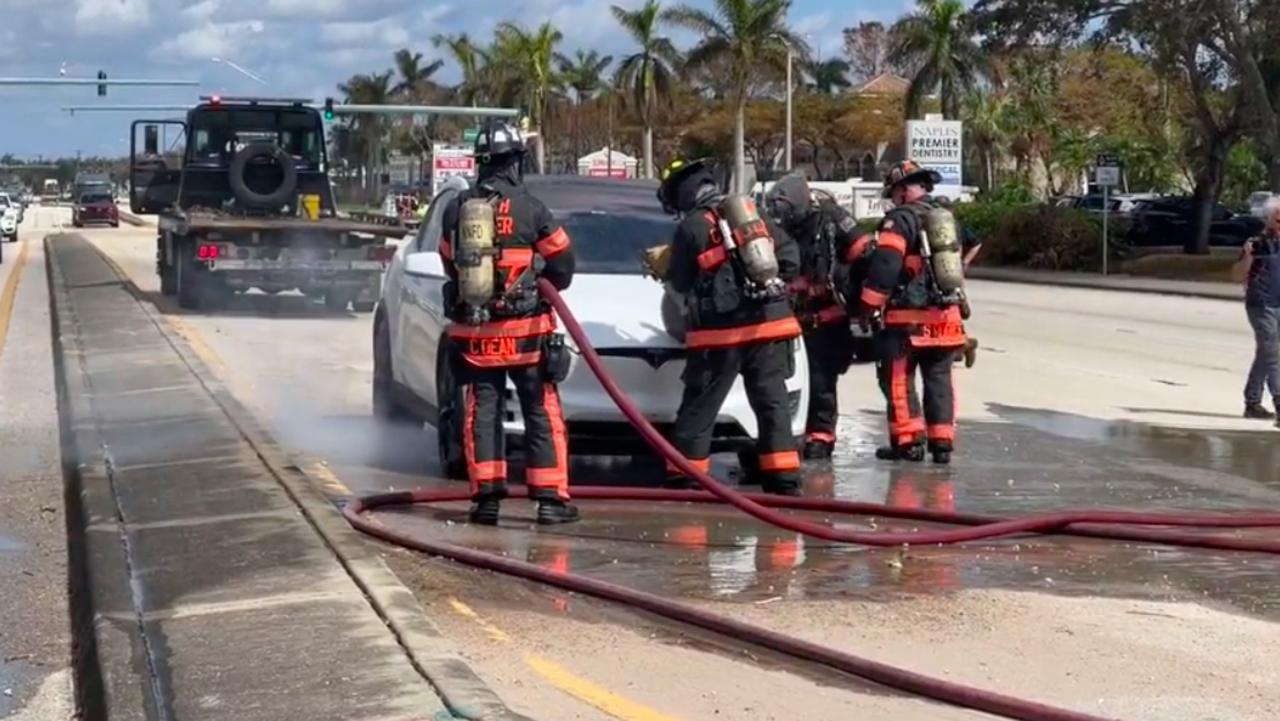Flooding exposes ‘extreme risk’ of new electric cars
American authorities are urging owners of high-tech cars to think carefully about where vehicles are parked in a storm, following a series of house fires.
Electric cars damaged by floodwater have been linked to several house fires following Hurricane Ian in North America.
Powerful batteries in high-tech electric cars have caught fire after being compromised by saltwater from storm surges in Florida.
If you own any EV that was flooded in salt water get it towed away from any structure. Extreme fire risk and difficult to extinguish. @elonmusk ,@ByronDonalds@JimmyPatronis .God Bless @NCFRPiopic.twitter.com/0rzW8ljHpK
— Bob Rommel (@bob_rommel) October 6, 2022
Jimmy Patronis, Florida’s chief financial officer and state fire marshal, told NewsNation that “we learn something from every single natural disaster, we truly do”.
“And what we are learning from this one is EVs are not compatible with salt water.
“When they become inoperable, when they have shorts, when they have corrosion and they are in your garage, as a lot of cars were because of this storm surge event, they become now a fire hazard for your house.”
If an EV catches fire, there’s not a lot fire teams can do. The second you stop dousing an EV with water, it flames up again. If a compromised EV was left in a garage for Hurricane Ian, the car burns and so does the house. How many EVs were left behind? How many are compromised? https://t.co/EnPfYadLnb
— Jimmy Patronis (@JimmyPatronis) October 11, 2022
Patronis told NewsMax that four electric cars caused problems in his area following the storm.
Firefighters found that electric cars damaged by saltwater would reignite multiple times.
Florida House of Representatives member Bob Rommel said electric cars posed an “extreme fire risk” and urged owners to have flood-damaged cars towed away from their houses.

America’s National Highway Transport Safety Administration said flooded vehicles with lithium-ion battery packs should be moved “at least 50 feet from any structures, vehicles or combustibles”.
There’s a ton of EVs disabled from Ian. As those batteries corrode, fires start. That’s a new challenge that our firefighters haven’t faced before. At least on this kind of scale. #HurricaneIanpic.twitter.com/WsErgA6evO
— Jimmy Patronis (@JimmyPatronis) October 6, 2022
The NHTSA said fires in vehicles flooded with saltwater occur as “salt bridges can form within the battery pack and provide a path of short circuit and self heating. This can lead to fire ignition.”
“The time period for this transition from self heating to fire ignition can vary greatly.
“Lithium-ion vehicle battery fires have been observed both rapidly igniting and igniting several weeks after battery damage occurred.”



